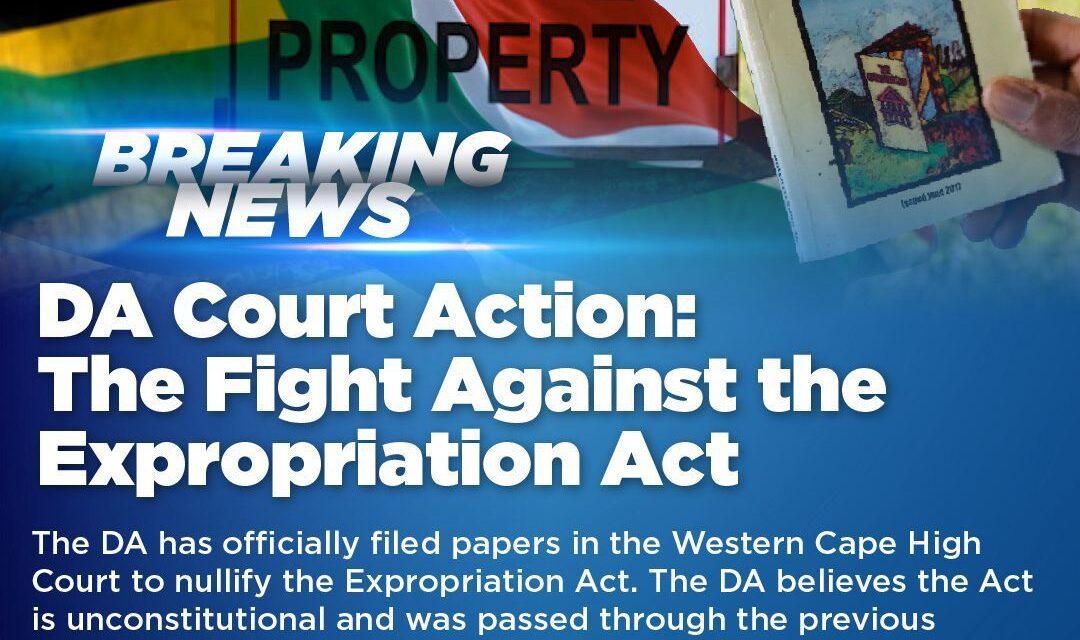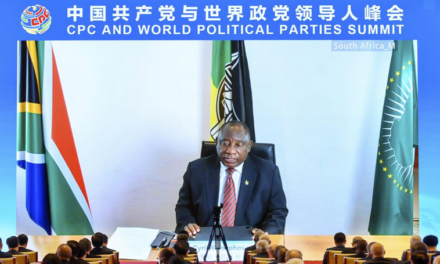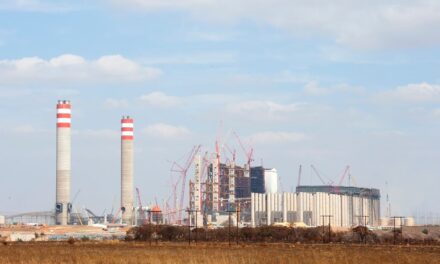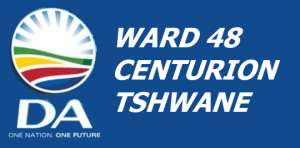10 February 2025
The DA has filed papers in the High Court to challenge the recently signed Expropriation Act, because the Act is unconstitutional, both substantively and procedurally.
The DA’s papers were filed, electronically, in the Western Cape High Court on Friday 7 February 2025.
During the process in the 6th (previous) Parliament to pass the Act, the DA was unequivocal: We reject this Act, because we believe that no government in a democratic country should be given such sweeping powers to expropriate property without compensation.
We have not forgotten that the apartheid government used similar powers to forcibly remove communities from their land, often with inadequate compensation or none at all. This history teaches us that true redress requires protecting property rights, ensuring that no government is ever given unchecked expropriation powers ever again.
It is for this reason that the DA will fight to ensure that every South African can have their property rights defended, protected and advanced.
The Presidency announced that the Act was signed into law in December 2024, against the advice of the Minister of Public Works and Infrastructure, Dean Macpherson, who provided the president with a legal opinion that there were issues with the bill that rendered it unconstitutional.
The DA has asked the Court for an order that will nullify the Expropriation Act in its current form. The DA’s challenge to the Act is both substantive and procedural, and includes:
1. The process of adopting the Act did not conform to the constitution. Five out of the seven provinces that voted for the Act in the National Council of Provinces, did so without obtaining a provincial mandate in the manner prescribed by law and regulations;
2. The Act is vague and contradictory in several clauses, which renders it unconstitutional.
The purpose of this court action is to have the Act nullified in its entirety.
Apart from compelling legal shortcomings, the DA strongly opposes the substance of the Act, which seeks to fulfil the mandate of the ANC’s elective conference in 2017, which mandated the ANC to include expropriation without compensation as an instrument of law.
After the DA defeated the ANC’s plan to amend Section 25 of the Constitution to enable expropriation without compensation, amending this Act became a blunt instrument of ANC majoritarianism in the last Parliament.
There are at least three other Acts that deal with restitution for injustices of the past that give meaning to Section 25 of the Constitution, and where the DA governs, we are facilitating just and fair compensation in terms of these laws (the Restitution of Land Rights Act, and two Land Reform Acts).
In the current Expropriation Act we reject the ANC trying to smuggle in further powers of expropriation without compensation in an Act that is meant to provide for expropriation in circumstances where the state needs to develop infrastructure such as roads, railways and dams. Every country has legislation to ensure that the state can, with fair compensation, build public infrastructure, but this Act goes too far outside of these accepted international norms.
In the passage and signature of the Expropriation Act, the ANC wants to dramatically widen the purview of expropriation, and keep the window for land restitution open indefinitely.
However, an ANC government is no longer in power on its own.
The voters require it to be in a coalition, and the ANC is bound by a signed Statement of Intent for a coalition with the DA. This means that they cannot simply proceed to implement resolutions of ANC elective conferences. The ANC now has to share power for the first time in our democratic history, and the DA will not stand by and allow the ANC to act as though they won a majority. We will stand up for our positions and commitments to the people of South Africa.



















